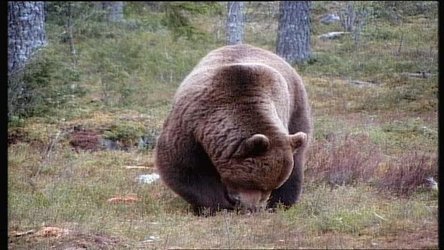Accept all cookies Accept only essential cookies See our Cookie Notice

About ESA
The European Space Agency (ESA) is Europe’s gateway to space. Its mission is to shape the development of Europe’s space capability and ensure that investment in space continues to deliver benefits to the citizens of Europe and the world.
Highlights
ESA - United space in Europe
This is ESA ESA facts Member States & Cooperating States Funding Director General Top management For Member State Delegations European vision European Space Policy ESA & EU Space Councils Responsibility & Sustainability Annual Report Calendar of meetings Corporate newsEstablishments & sites
ESA Headquarters ESA ESTEC ESA ESOC ESA ESRIN ESA EAC ESA ESAC Europe's Spaceport ESA ESEC ESA ECSAT Brussels Office Washington OfficeWorking with ESA
Business with ESA ESA Commercialisation Gateway Law at ESA Careers Cyber resilience at ESA IT at ESA Newsroom Partnerships Merchandising Licence Education Open Space Innovation Platform Integrity and Reporting Administrative Tribunal Health and SafetyMore about ESA
History ESA Historical Archives Exhibitions Publications Art & Culture ESA Merchandise Kids Diversity ESA Brand Centre ESA ChampionsLatest
Space in Member States
Find out more about space activities in our 23 Member States, and understand how ESA works together with their national agencies, institutions and organisations.
Science & Exploration
Exploring our Solar System and unlocking the secrets of the Universe
Go to topicAstronauts
Missions
Juice Euclid Webb Solar Orbiter BepiColombo Gaia ExoMars Cheops Exoplanet missions More missionsActivities
International Space Station Orion service module Gateway Concordia Caves & Pangaea BenefitsLatest
Space Safety
Protecting life and infrastructure on Earth and in orbit
Go to topicAsteroids
Asteroids and Planetary Defence Asteroid danger explained Flyeye telescope: asteroid detection Hera mission: asteroid deflection Near-Earth Object Coordination CentreSpace junk
About space debris Space debris by the numbers Space Environment Report In space refuelling, refurbishing and removingSafety from space
Clean Space ecodesign Zero Debris Technologies Space for Earth Supporting Sustainable DevelopmentLatest
Applications
Using space to benefit citizens and meet future challenges on Earth
Go to topicObserving the Earth
Observing the Earth Future EO Copernicus Meteorology Space for our climate Satellite missionsCommercialisation
ESA Commercialisation Gateway Open Space Innovation Platform Business Incubation ESA Space SolutionsLatest
Enabling & Support
Making space accessible and developing the technologies for the future
Go to topicBuilding missions
Space Engineering and Technology Test centre Laboratories Concurrent Design Facility Preparing for the future Shaping the Future Discovery and Preparation Advanced Concepts TeamSpace transportation
Space Transportation Ariane Vega Space Rider Future space transportation Boost! Europe's Spaceport Launches from Europe's Spaceport from 2012Latest
Hibernation: Sleep while traveling to other planets
Hibernation - sleep while travelling to other planets
ESA TV Exchanges
Manned missions to Mars are no longer wild dreams. For example, ESA's Aurora programme is studying how, after exploring Mars with robotic missions, it is possible to send astronauts to the red planet. Astronauts on such missions would face the challenge of living in a confined space with not much to do for extremely long periods. ""Might as well sleep it off!"" Studies initiated by ESA's Advanced Concepts Team have gone one step further. Couldn't astronauts mimic the hibernation of animals? Two biologists are conducting, as ESA consultants, investigations into the physiological mechanisms that mammals use to hibernate.
Although these studies are in a very early stage, and do not address missions to Mars, it is obvious that the astronaut's ability to hibernate would have a significant benefit in abort and emergency scenarios. Of course, a suitable and lightweight 'hibernaculum' to shelter astronauts during their 'long sleep' would have to b
A state of human hibernation induced to cope with long haul space travel, now researchers are studying naturally hibernating animals to discover the science of suspended animation. The goal to apply the findings to Man and make the stuff of science fiction a reality.
The International Space Station might be a technological marvel but it doesn't offer the comforts of home. Because this is a concentrated universe where living is anything but easy.
Space is limited putting great pressure on the astronaut's body and mind, muscles waste, and the atmosphere is claustrophobic
When manned deep space missions become a reality its only going to get worse.
Scientists are looking to the animal kindgom for answers, specifically tracking down the mechanism that allows them to hibernate, an ideal condition for astronauts travelling for years through Space.
At the University of Pavia in Italy a research team is conducting hibernation experiments on behalf of the European Space AgencyProfes
-
CREDIT
ESA -
LICENCE
ESA Standard Licence
-
Documentary
-
-
-

Hibernation: Sleep while traveling to other planets

Hibernation infographics

Bear sleeping

Hibernation. We research. You benefit.















 Germany
Germany
 Austria
Austria
 Belgium
Belgium
 Denmark
Denmark
 Spain
Spain
 Estonia
Estonia
 Finland
Finland
 France
France
 Greece
Greece
 Hungary
Hungary
 Ireland
Ireland
 Italy
Italy
 Luxembourg
Luxembourg
 Norway
Norway
 The Netherlands
The Netherlands
 Poland
Poland
 Portugal
Portugal
 Czechia
Czechia
 Romania
Romania
 United Kingdom
United Kingdom
 Slovenia
Slovenia
 Sweden
Sweden
 Switzerland
Switzerland

























